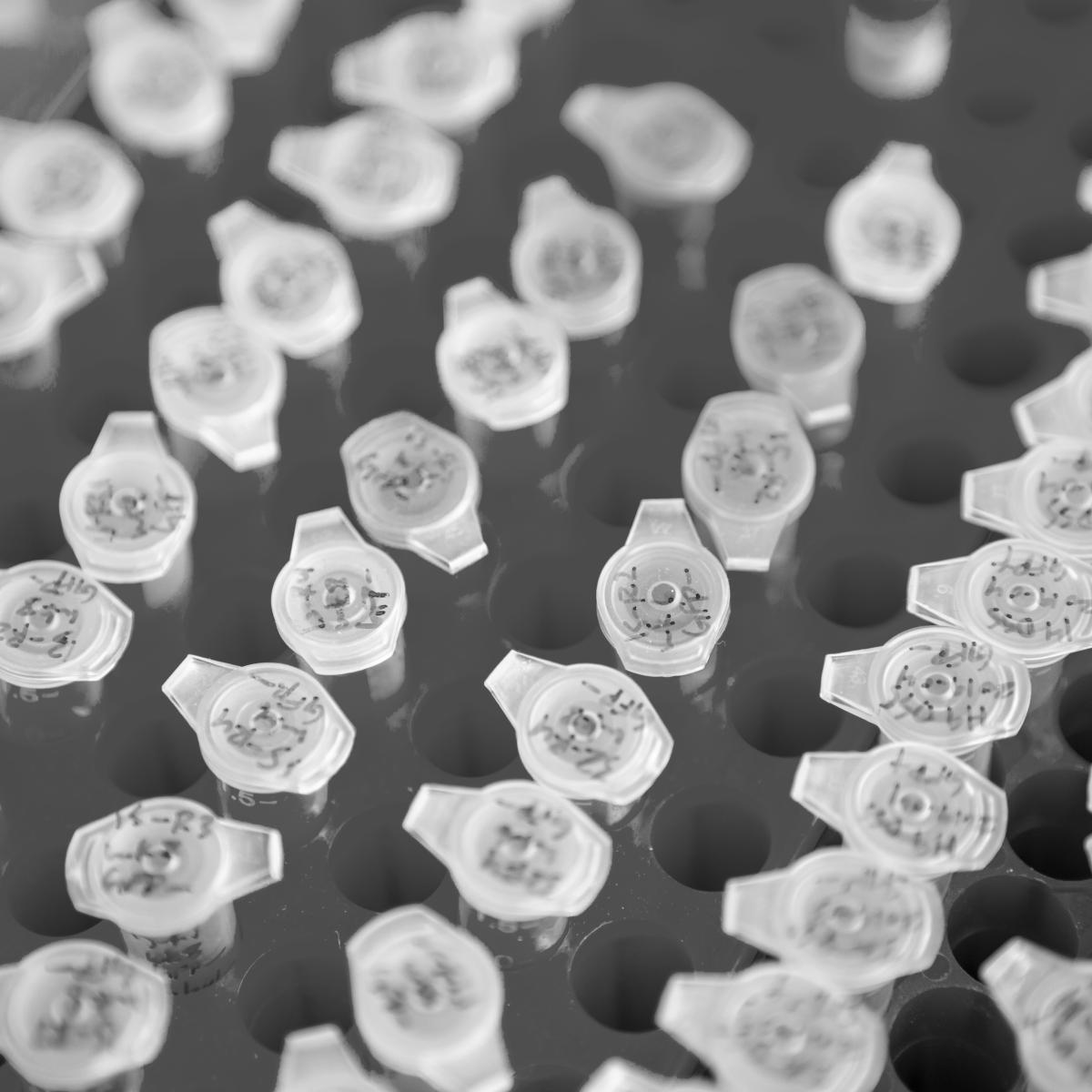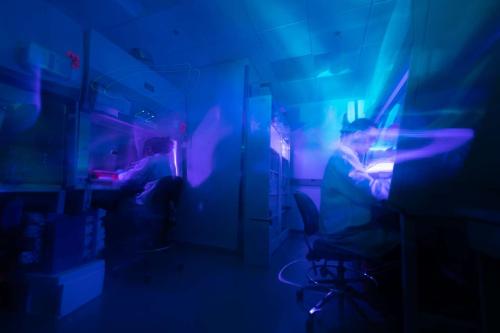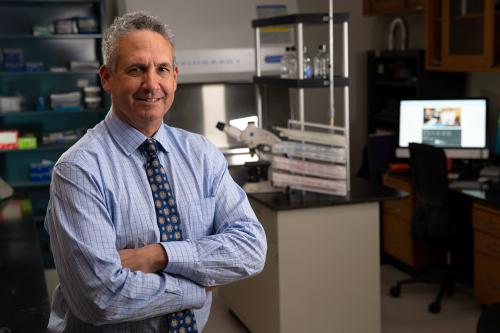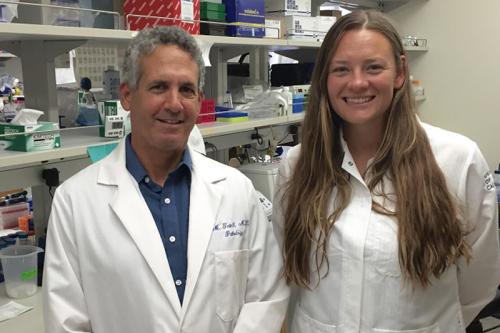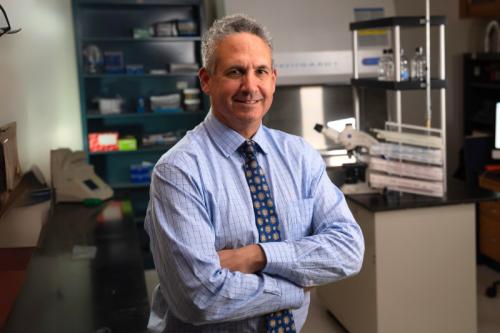
Michael Teitell, M.D., Ph.D.
- Lya and Harrison Latta Endowed Chair, Pathology
- Professor, Pathology and Laboratory Medicine
- Director, UCLA Health Jonsson Comprehensive Cancer Center
- Professor, Pediatrics
- Professor, Bioengineering
- Associate Dean, Cancer Research and Care, David Geffen School of Medicine at UCLA

Michael Teitell, M.D., Ph.D., investigates the fundamental mechanisms driving cancer development and growth, as well as mitochondrial biology and stem cell biology. He studies cellular energy production and develops new technologies to analyze and modify cells, aiming to find better ways to diagnose and treat diseases.
Teitell integrates clinical expertise with cutting-edge research to advance understanding of the metabolic and epigenetic regulation of stem cell fate decisions. He investigates the interface between mitochondria and cellular gene expression programs, particularly in cancer contexts, and develops technologies with applications in cell engineering and cell response profiling.
A key focus of Teitell's research is B lymphocyte development and cancer. His work on the fundamental mechanisms of cancer formation and progression has led to the discovery of oncogenic mechanisms in B cell lymphoma.
Teitell has developed innovative biotechnologies to tackle challenging biological problems, such as the photothermal nanoblade and live cell interferometer. His work also includes advancements in stem cell metabolism research and the collaborative development of new approaches in cell engineering and response detection.
Through his leadership in institutional and national settings, as well as mentorship of numerous trainees, Teitell continues to help shape the landscape of biomedical research and clinical practice.
Research Projects
- Studying how changes in energy production affect stem cell fate during early mammalian development, with the goal of understanding the broader impact of metabolic reprogramming In stem cell research, scientists can reprogram cells that have undergone differentiation, such as skin or blood cells, to revert back into an embryonic-like state. The resulting cells are called induced pluripotent stem cells. reprogramming In stem cell research, scientists can reprogram cells that have undergone differentiation, such as skin or blood cells, to revert back into an embryonic-like state. The resulting cells are called induced pluripotent stem cells. on cell differentiation The process by which stem cells transform into specific, specialized cell types with distinct functions and features. differentiation The process by which stem cells transform into specific, specialized cell types with distinct functions and features.
- Investigating mitochondrial transplantation, exploring its role in various biological contexts and developing methods to controllably transfer mitochondria to study their impact on human health and disease
- Exploring quantitative phase imaging in nanomedicine to gain insights into drug response, cancer progression and cellular processes, with a focus on enhancing clinical diagnostics and therapeutic strategies
- Investigating the role of the TCL1 oncogene in leukemia and lymphoma and developing a mouse model that mimics B cell cancers
- Identifying signaling pathways controlling B cell differentiation into plasma cells, shedding light on immune response mechanisms and potential therapies
-
Medical Board Certifications
- Pathology-Pediatric, American Board of Pathology, 2001
- Pathology-Anatomic/Pathology-Clinical, American Board of Pathology, 1997
Fellowship
- Pediatric Pathology, Children's Hospital Los Angeles, 1999
Residencies
- Clinical Pathology, Cancer Genomics, UC San Francisco School of Medicine, 1997
- Anatomic Pathology, Brigham and Women's Hospital, 1995
Internship
- Molecular and Cellular Immunology, UCLA, 1993
Degrees
- M.D., David Geffen School of Medicine at UCLA, 1993
- Ph.D., Molecular Immunology, David Geffen School of Medicine at UCLA, 1991
